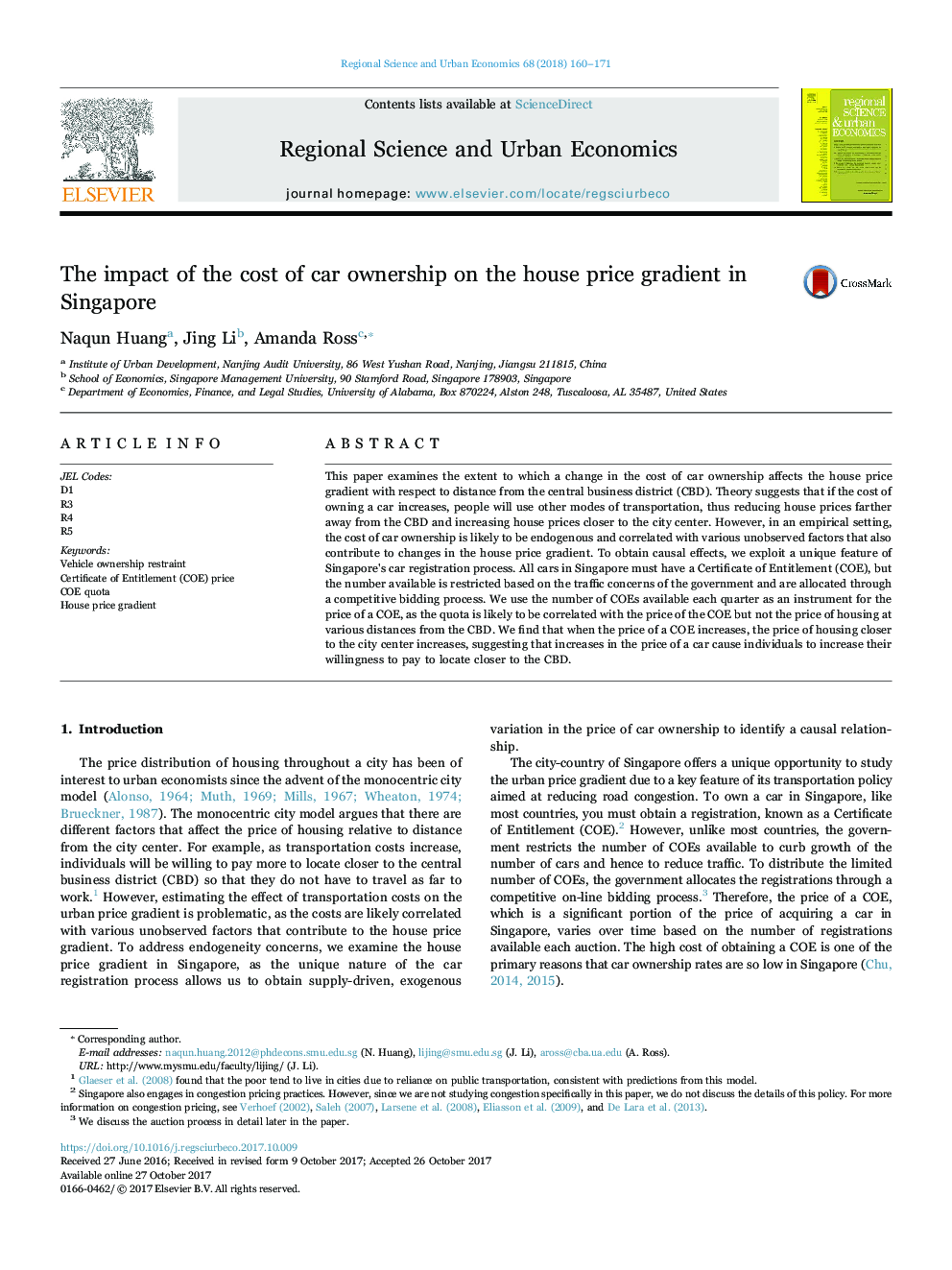| Article ID | Journal | Published Year | Pages | File Type |
|---|---|---|---|---|
| 7383755 | Regional Science and Urban Economics | 2018 | 12 Pages |
Abstract
This paper examines the extent to which a change in the cost of car ownership affects the house price gradient with respect to distance from the central business district (CBD). Theory suggests that if the cost of owning a car increases, people will use other modes of transportation, thus reducing house prices farther away from the CBD and increasing house prices closer to the city center. However, in an empirical setting, the cost of car ownership is likely to be endogenous and correlated with various unobserved factors that also contribute to changes in the house price gradient. To obtain causal effects, we exploit a unique feature of Singapore's car registration process. All cars in Singapore must have a Certificate of Entitlement (COE), but the number available is restricted based on the traffic concerns of the government and are allocated through a competitive bidding process. We use the number of COEs available each quarter as an instrument for the price of a COE, as the quota is likely to be correlated with the price of the COE but not the price of housing at various distances from the CBD. We find that when the price of a COE increases, the price of housing closer to the city center increases, suggesting that increases in the price of a car cause individuals to increase their willingness to pay to locate closer to the CBD.
Related Topics
Social Sciences and Humanities
Economics, Econometrics and Finance
Economics and Econometrics
Authors
Naqun Huang, Jing Li, Amanda Ross,
